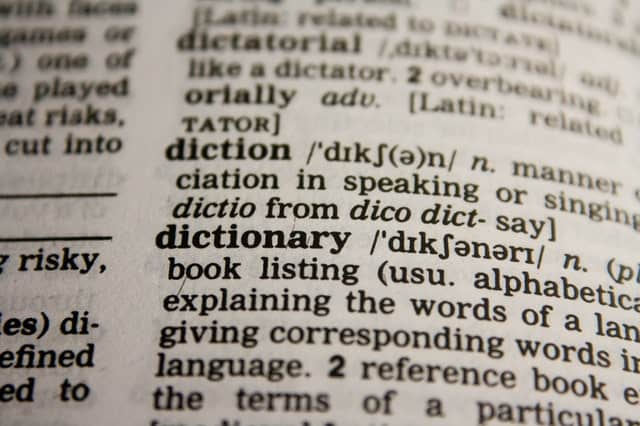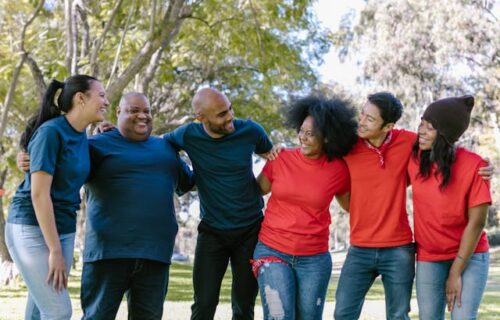
the amazing power of language
If you’ve followed me for a while, you know I’m a language geek. Okay, I’m the one judging your grammar and correcting your spelling and punctuation—yes, even in your texts.
My first career was as a foreign language instructor. No surprise—I come from a family where my parents could switch into not one but three or four languages they both spoke when they didn’t want the kids to understand them. They both knew more than four—and “only” three or four overlapping ones.
I’m passionate about wordplay, love double entendres, and can never pass up a terrible pun. I laugh at “nerbs” (verbs that used to be nouns: calendar, lunch, language, office, surface…) and love made-up words that really ought to be in the dictionary (shezausted, twiggle, irregardless, disintermediate—oh wait, those last two are actually in there now).
Early on, I realized that growing up bilingual and studying a number of other languages—from Latin to Mandarin—gave me a superpower that many monolingual people lack: the ability to see things from different perspectives.
Case in point: in English, “You’ve gained weight” is anything but a compliment, while in Chinese, it’s like saying, “You look great/healthy!” (My kids still raise their eyebrows and/or cringe when their father, who is Chinese, sees them on FaceTime and exclaims, “Your face is rounder!”)
the power of language
Language not only reflects our observation of reality: it’s a powerful tool that can, in fact, rewire our brain and, therefore, change our observation of reality—or, really, change reality.
As a health coach—three or four careers removed from teaching language—I still use the power of language to help clients shift to a more positive mindset:
- Use “and” not “but.”
- Say “I get to” rather than “I should.”
- Ask, “Why is this happening for me (not to me),” etc.
(See, Mom? that BA + MA weren’t wasted!)
the language of power
There are times when I’m frustrated because I can’t think of a better way to articulate something, and I’m delighted when I find that better way.
I remember a long discussion at the church where I was the parish administrator about how to “language” a line in the weekly service bulletin: “You are welcome to take communion __________ your faith tradition.” Regardless of? Whatever? Irrespective of? Each choice gives it a different tone or meaning. Thank goodness “irregardless” was not in common use in the early 2000s.
The sentence that’s been bugging me for a few years now is this one: “I just don’t care anymore.”
That’s the PG-rated version of what many women tell me when I ask, “What’s the best part of being over 40?” and it’s been bugging me for about three years.
I often wonder whether they frankly, my dear, don’t give a damn (negative and heavy) or whether they really mean that they finally feel that their own opinions and needs merit equal consideration as everyone else’s (which feels positive, light and powerful and expansive).
Because in our 40s, many women do suddenly come into their own power—some gradually and some, it seems, overnight.
And I think it’s important to use our language in a powerful way—both to help us re/claim this power and to reflect our new reality.
i don’t care anymore
I recently had an interaction with my friend Audrey Acton about “I don’t care anymore” in my Facebook group, and the lightbulb finally clicked on.
The word “care” can mean “to be emotionally invested in” and “to nurture”—as in “to take care of.”
I highly doubt that we are emotionally disinvested from (care about) what others think, feel, do, or say after we hit 40—and we may just be stepping away from caring for those others as they think, feel, act, and speak in and from their own reality.
And that is precisely what I love to see my clients doing: stepping away from taking care of everyone else and giving themselves permission to use that “found” time to focus on their own health.
So yes—if I ask you what the best part of being in midlife is and you say, “I don’t care anymore,” I’m going to ask you to consider what you mean. It’s one more language game we can play as we re/claim your health—and your power.
make the connection
Whether you geek out over language or not, using it to shift your mindset and re/claim your best health is just one of the tools I use in my coaching programs. Your next chance to join a virtual group program is NOW! The next cohort of “EAT™ | Your way to health” launches March 1—and partial scholarships are available! More information and link to application form can be found here.




Alright! I made the blog! Go me. I love where you took that discussion. I am so glad it offered up so much to dive into. I also love where you went with it. As always, you are right on the nose.
Awwww. Thanks, Audrey—for giving me the inspiration and for engaging in the comments!